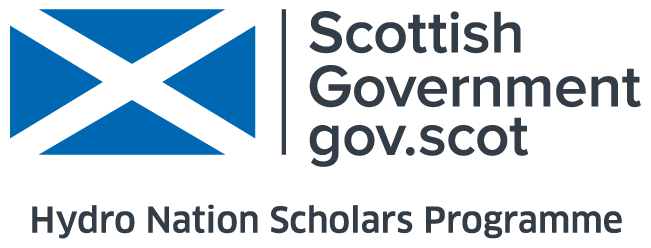Innovative brash management to enhance water quality following peatland restoration and forestry operations

"The source of our water can be negatively impacted by felling trees and peatland restoration. My research uses innovative felling methods and a by-product from these processes to help clean the impacted water."
Anna McWilliam’s PhD research at the Environmental Research Institute, North Highland College, University of the Highlands and Islands focuses on innovative brash management to enhance water quality following peatland restoration and forestry operations.
Brash, the branches and crown wood that is left after the tree stem has been harvested, is a low value material. Extra costs are incurred to remove it from site, meaning this is not economically favourable. Experimental work has shown decomposing brash to be a direct source of nutrients to surface waters, while its removal can significantly reduce nutrient loads. However, the presence or absence of brash on restoration sites can bring about different water chemistry changes immediately following restoration and the precise mechanisms involved are not clear (e.g., nutrient release from brash, needles or rewetted peat). Thus, there is a need to understand how the presence or absence of brash affects the medium to longer-term recovery of water quality at restoration sites, which can inform future peatland restoration practice, as well as forestry practice more broadly. Additionally, brash (as a lignocellulose biomass) can be converted to biochar through pyrolysis (high temperature, low oxygen decomposition). Biochar derived from lignocellulose materials has been effectively used for many purposes including water treatment. There is the potential to create an added-value product marketable for water treatment, which could offset some of the cost of brash removal in restoration.
Anna will design field and laboratory experiments to investigate the mechanisms and nature of nutrient release from brash (chemistry, conditions of release, temporal processes, etc.). Then she will explore the production of biochar(s) from varying brash and investigate its physical and chemical properties. The biochar would first be used in laboratory studies to investigate its potential in water treatment (i.e., nutrient removal). Following this, she will undertake field experiments - to explore the efficiency of removal of target pollutants (such as phosphate/ammonium/nitrate/TOC, etc.), which can become elevated in streams draining restoration and felled areas.
From this research, Anna’s project will produce guidance to help the forestry industry enhance water quality following peatland restoration and forestry operations.
Prior to starting her PhD, Anna completed an MSc in Wildlife Management and Conservation and a BSc (Hons) in Science. Since then, she has worked as an Ecologist on a variety of research projects in association with The Golden Eagle Trust, RSPB, GWCT, Scottish Natural Heritage, and The James Hutton Institute. Anna has also worked as an Environment Ranger and Harvesting and Marketing Forester for Forestry and Land Scotland.
Anna’s PhD combines her interests in ecology, water quality, peatland restoration and forestry, allowing her to improve degraded habitats at the local and landscape scale.
